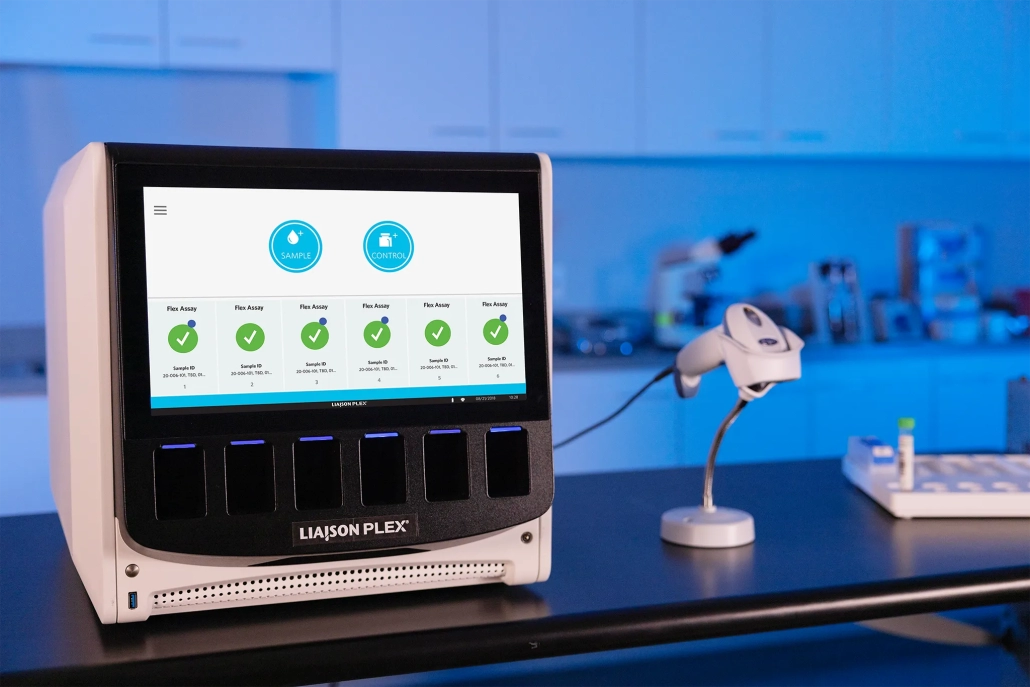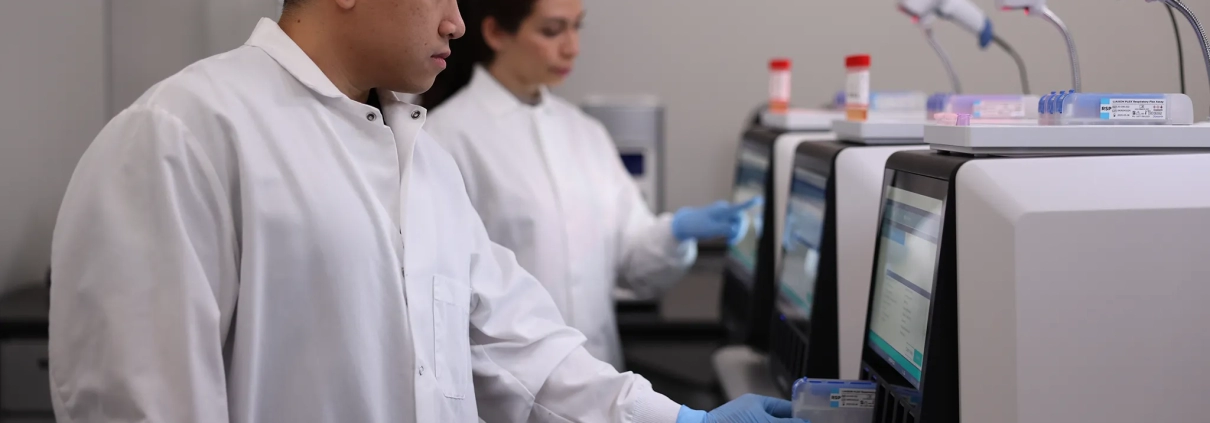Advancing Respiratory Diagnostics: Customization and Cost Control with the LIAISON PLEX® System
By Steve Michalik

A Stewardship-Centered Approach to Respiratory Diagnostics: Cedars-Sinai’s Strategy with Dr. Margie Morgan
Traditional syndromic respiratory testing has long followed an “all-or-nothing” approach—offering broad menus at a premium price, regardless of what the clinician actually needed. But at an ASM Microbe 2025 Industry & Science Showcase, Dr. Margie Morgan of Cedars-Sinai Medical Center presented a smarter, more cost-effective alternative: the LIAISON PLEX® Respiratory (RSP) Flex Assay. While the 50% cost savings she cited—cutting expenses from $130,000 to $65,000 per 1,000 samples—were based on data from the VERIGENE® Respiratory Pathogens (RP) Flex Test compared to fixed panels, even greater savings are anticipated with LIAISON PLEX due to its advanced automation, broader test menu, and customizable panel design.
Watch Dr. Morgan’s presentation.
A Paradigm Shift: One-Size-Doesn’t-Fit-All Testing
At Cedars-Sinai, the microbiology team was under growing pressure to reduce testing volume and costs, especially for high-volume assays like respiratory panels. Traditional fixed panels often included far more targets than needed, leading to over-testing and unnecessary costs.
The LIAISON PLEX RSP Flex Assay changed the game by offering unmatched customization:
- Build any test menu: The panel can be tailored to seasonal trends, patient demographics, and clinical algorithms. Whether you need a focused 7-target panel for general medicine or a broader 19-target panel for ICU patients, the system supports it all—without requiring new hardware or validations.
- Only pay for what you report: Thanks to Diasorin’s proprietary Flex® Software, labs are billed only on the number of targets reported. This tiered pricing model drastically reduces costs, especially in outpatient and outreach settings.
- Instant access to unreported results: If additional information is needed later (e.g., if a patient’s symptoms worsen), labs can unlock more target results from the same initial run—no second swab, no re-testing, and no added burden on staff.
- Run any panel size on a single platform: Run all custom panels on a single, scalable system, minimizing training, maintenance, and inventory.
Cedars-Sinai’s Implementation Strategy
By customizing the LIAISON PLEX RSP Flex Assay to fit Cedars-Sinai’s clinical and financial needs, Dr. Morgan’s team achieved:
- Strategic use of focused panels for general wards, with broader panels reserved for high-risk or immunocompromised patients
- Reduced reliance on send-out testing for targets like Mycoplasma pneumoniae.
- A single platform to support multiple respiratory testing algorithms across departments
These changes weren’t just administrative; they were rooted in robust collaboration between ID specialists, stewardship committees, and lab leadership. And they delivered results: lower costs, greater physician satisfaction, and improved diagnostic yield aligned with real-time local pathogen trends.
Why LIAISON PLEX RSP Flex Is the Future of Syndromic Testing
Traditional fixed syndromic respiratory panels are expensive, rigid, and operationally inefficient. In contrast, the LIAISON PLEX RSP Flex Assay on the LIAISON PLEX® System offers flexible syndromic testing (Flex):
- Custom panel design for any patient population
- Dramatic cost savings through pricing based on the number of targets reported
- On-demand reflex testing performed from the initial specimen
This model supports true diagnostic stewardship at the right price.
Key Takeaway:
The LIAISON PLEX® RSP Flex Assay empowers clinical labs to abandon the one-size-fits-all approach to take control of their testing needs. With customizable panels, flexible pricing, and real-time access to additional results, LIAISON PLEX RSP Flex is not just a better test, it’s a better strategy.

